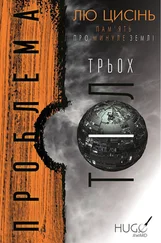His words elicited laughter. “General Scott, we’re intrigued by your pips,” said the chief of general staff of the Russian Armed Forces, Marshal Zavyalova, her tone sarcastic. Scott had seven stars on his shoulder.
“You have reservations about the number of stars? True, the highest rank ever created by the US Army was a six-star general, and that was a posthumous, ceremonial promotion. But I want seven stars on my shoulder. Patton himself could covet decorations, so why can’t I wear one more star? The president hasn’t criticized me, so what are you going to do?”
“I’m just wondering why you’re not wearing eight stars. That would be more symmetrical.”
“No, the layout would be too rigid. I’d prefer nine!”
Lü Gang put in, “Just slap on an American flag, why don’t you?”
Furiously, Scott said, “You’re mocking me, General Lü. I can’t permit this! I won’t!”
“Can you go a single day without getting into a fight?” Davey said.
“He’s mocking me!” Scott said, pointing at Lü Gang.
Davey grabbed the pipe out of Scott’s hand and threw it onto the table. “From now on, no messing around with that wacky crap. Also, take three of the stars off that idiotic shoulder mark. Don’t give the media anything to gossip about.”
Scott’s face reddened as he realized that the day’s choice of style had been a mistake. MacArthur was inappropriate for the president’s presence.
Yagüe rapped the table again with the helmet serving as a gavel. “Okay now, let’s continue. There are two items on the agenda for today’s meeting. First, to set out general principles for the war games, and second, to determine the events. We’ll proceed to the first agenda item. Our proposal for general principles are as follows: To make the games thrilling and fun, the six major military powers taking part, namely the United States, Russia, the European Union (counting as a single country during the war games), China, Japan, and India, as permanent members of the World Games, must abide by the package principle; that is, they must take part in all events. Other countries may selectively participate in the events as they so choose.”
The general principles gained unanimous approval from all countries, and Davey said with delight, “Excellent. A commendable beginning.”
Yagüe rapped the helmet again. “Next we’ll move to the second item, determining the events.”
“I’ll propose one first,” Davey called out. “Carrier battle groups!”
The other children were shocked into silence for a moment, and then Yagüe asked tentatively, “Isn’t that a little too… big? A carrier group? With all the aircraft on the carrier, and the escort of cruisers and destroyers and submarines? It’s too big.”
Davey said, “That’s the point! Don’t kids want to bring out the big guns?”
Huahua stood up. “American kids, maybe. We can’t play that game, though. China doesn’t have an aircraft carrier.”
“Japan doesn’t, either,” said Ōnishi.
Prime Minister Jairu of India said, “We’ve got one, but an old model with traditional propulsion. And we can’t put together a battle group.”
“What you mean is that it’ll be the EU, Russia, and us, and you all watch from the sidelines?” Davey asked.
Yagüe nodded, and added, “That’s not in line with the package principle.”
Huahua shrugged. “That can’t be helped. We can’t fabricate an aircraft carrier.”
“And you all won’t let us make one,” Ōnishi said, and snorted.
Scott pointed at the two of them and said, “The games have only just begun and already you’ve spoiled them!”
Standing up, Lü Gang suggested, “How about this. We use our cruisers and submarines against your carrier groups?”
“No way!” Davey shouted.
“He’s a smart kid,” Lü Gang whispered into Huahua’s ear after sitting down, and Huahua smiled slightly and nodded.
Davey was actually well aware that the adults’ aircraft carriers were an entirely different beast in children’s hands. Child naval aviators had only just learned to fly solo, and their strike rate against ship and ground targets was very low. At the same time, carrier group combat was a highly sophisticated technical process that children could not master in such a short time, so in an actual battle, ships launched from the carrier might be unable to locate their targets. More dismaying to the US Navy was carrier security. Carriers had few defensive capabilities of their own, but relied on the escort in the carrier group for protection. The hardware and software of the Aegis-based carrier defensive system that consolidated the various weapons systems of cruisers, destroyers, and submarines was so complicated it made even the adults’ eyes blur, and there was no way that children could operate it normally. Although the carrier had as usual sailed out surrounded by attending ships, it was actually quite poorly defended, and its ponderous bulk made it an excellent target on the open sea. Lots of weapons were scary to the American children; the Chinese Navy’s C-802 antiship missile (the “Chinese Exocet”), for instance, presented a huge combat threat. It only took a single missile breaking through the Aegis perimeter and striking the carrier to sink it. As the commander of the Pacific Fleet said, “Right now our aircraft carrier is as fragile as an egg floating on the ocean.” A tyrant of the waves in former days, now the best it could do was serve as a transport craft for fighter jets. But it could not be permitted to sink. It was a spiritual support for the American children, a symbol of American power, and so during this event, America’s carriers were off cruising the Pacific, far from shore. Davey had only been bluffing.
“Very well,” Davey said with a sigh. “Let’s make it a destroyer game.”
The permanent members approved unanimously, and Yagüe wrote the event down in a notebook. Then he looked up and said, “Continue suggesting—”
“Submarines!” shouted Prime Minister Green.
“That won’t be any fun, a bunch of kids playing cat and mouse in the dark,” said Marshal Zavyalova, but Yagüe wrote it down anyway.
“Don’t stick to the ocean. How about a land game?” Huahua asked.
“Fine. A tank game!” Russian president Ilyukhin said.
“That’s a major category, so we should be more detailed,” General Scott said. “I have a suggestion: head-on combat. Tank formations start from a distance and advance toward each other simultaneously, and commence firing.”
“That’s well-suited to the flat geography here. To make it more fun, restrict it to the tank’s gun. Don’t use guided missiles,” said Marshal Zavyalova. No one objected.
“Then there ought to be threshold distance. The two sides can only start firing when they’re within that distance,” Lü Gang said, seizing on the key issue. The Abrams, T-90, and Leclerc had far more advanced fire-control systems than the Chinese children’s Type 99.
“Thirty-five hundred meters,” Scott said.
“No, a thousand meters,” Lü Gang said.
The children began arguing, but Yagüe interrupted, “Fine, fine. The technical details can be sorted out by each event’s task force. We’re only deciding on the events in general.”
“This is critical. We need to decide it now,” Huahua said, refusing to give an inch. But they were outnumbered and ultimately a distance of three thousand meters, highly unfavorable to the Chinese children, was decided upon.
“We propose another tank event,” Huahua called out, raising a hand. “Ultra-close wall smashing!”
“What’s that?” The other children were mystified.
“The rules are that opposing tanks each start out behind two parallel brick walls, and when the start command is given, they topple the wall and attack each other. The walls erected on-site are only separated by ten to twenty meters.”
Читать дальше







![Лю Цысинь - Эпоха сверхновой [litres]](/books/393110/lyu-cysin-epoha-sverhnovoj-litres-thumb.webp)




